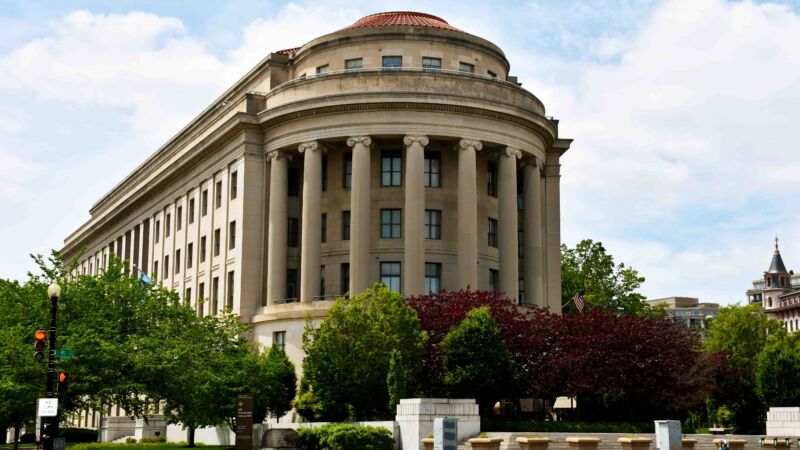In a recent discussion, legal experts James A. Paretti, Jr. and Melissa McDonagh, shareholders at Littler Mendelson P.C., provided insights into the implications of the court’s rejection of the Federal Trade Commission’s (FTC) proposed nationwide ban on non-compete agreements. The FTC’s rule, which aimed to prohibit employers from using non-compete clauses, was struck down by a federal judge in late August, who cited the agency’s lack of statutory authority to implement such a sweeping measure. The judge also quoted the Supreme Court’s Loper Bright case, which overturned the Chevron doctrine to give more authority to the courts instead of federal agencies regarding rulemaking.
Jump to ↓
| Fundamental flaws in FTC’s approach |
| Impact of Loper Bright ruling |
| Inconsistencies in FTC’s justifications |
| Future implications for regulatory agencies |
| Continued importance of non-competes |
| State and local regulations |
| Global perspective on non-competes |
Fundamental flaws in FTC’s approach
Paretti expressed skepticism regarding the FTC’s rule, suggesting that even without the recent Loper Bright decision, the rule would still be fundamentally flawed, as he believes the FTC exceeded its statutory authority. “The idea that for 95 years this agency had the power to do this and just…never bothered to do so…always seemed to me to be a stretch,” he said.
Impact of Loper Bright ruling
However, Paretti noted that the Loper Bright ruling significantly increased the difficulty for agencies to defend their regulations, necessitating stronger justifications to ensure compliance with statutory language, particularly when facing legal challenges.
McDonagh echoed this sentiment, noting that the Loper Bright ruling provided the courts “much more latitude”
in evaluating the validity of agency regulations. “The agency really has a much higher burden to show that…their reading is a justified one,” she said.
Inconsistencies in FTC’s justifications
McDonagh also agreed regarding the arbitrary nature of the FTC’s justifications for the rule by pointing out the agency’s inconsistent treatment of senior executives. “They sought to include or to exclude senior executives from the notice requirement, but then explained that they would be captured with a non-compete ban going forward,” she said. “It seemed like they had the outcome they wanted first, and then they went backwards and then sought to justify it however they could.”
Future implications for regulatory agencies
McDonagh believes that in light of the overturning of the Chevron doctrine, regulatory agencies will face increased pressure to provide robust evidence and sound reasoning when creating new rules and to work more diligently to justify their regulations, ensuring that they are well-supported by facts and logic before issuing them.
To that point, Paretti added that he already observed references to Loper Bright in cases that Littler is handling, including a challenge to the white-collar overtime rule, and believes there will be further challenges to other labor and employment rules because the ruling provided the courts “much more latitude.”
Continued importance of non-competes
Despite the ruling on the FTC’s ban on non-competes, McDonagh emphasized the importance of employers being thoughtful and selective when using such agreements or other restrictive covenants. “It’s not to limit what we call ordinary competition,” she began, “[i]t’s really to prohibit an employee or company from engaging in what we call unfair competition, and that’s always the goal, and how employers with whom we work are using their non-competes.”
Paretti also noted that non-compete clause agreements have “always been a fairly regulated field” and that just because the attempt by the FTC to ban these arrangements was “struck down doesn’t change the fact that employers need to…ask themselves” the purpose of the non-compete, if a court will uphold it, or if it is within the state law. “I don’t know that this gives employers much reason to shift horses at this point,” he added.
State and local regulations
Regarding other employment-related topics such as minimum wage and paid leave, states and localities have taken action to implement their own rules in the absence of federal action. Several states and many localities have minimum wage requirements and a number of states, and a few localities have paid leave laws. However, neither Paretti nor McDonagh see this trend following with states and localities regarding banning non-compete agreements.
“I think this is something that state legislatures have been looking at irrespective of what the FTC is doing,” Paretti said. He explained that “states have not been shy about moving ahead here in terms of legislating” and “state courts have not been shy about drawing means and bounds around these things.”
McDonagh added that “there’s four states currently that ban non-competes, and three of those states – California, North Dakota, and Oklahoma – have had a ban in place for some time.” The only recent ban on non-competes was Minnesota in 2023. She also noted that most state laws banning non-competes “are targeted and focus on an earnings threshold.”
Global perspective on non-competes
Something of interest that McDonagh did observe regarding the FTC’s recent attempt to ban non-competes is that employers are focusing more on these agreements at a global level. “I think when our country started envisioning a national law on it, it did spark comparison to other countries,” she said. “Is there a global approach that could be accomplished?”
McDonagh admitted the difficulty in a worldwide non-compete agreement “because there’s a big range of laws across the world” but added that she thinks a lot of Littler’s clients “who operate globally are starting to think about a uniform, global approach.”
To that end, McDonagh explained that employers must navigate a complex landscape of non-compete rules that vary by state and country when an employee from the United States relocates to another country. The enforceability of non-compete agreements can depend significantly on the state laws where the employee originated and the specific regulations in the country to which they have moved. Additionally, the duration of the employee’s stay abroad may impact whether U.S. employment rules still apply.
“You need to plan ahead for the what-ifs,” McDonagh advised.








